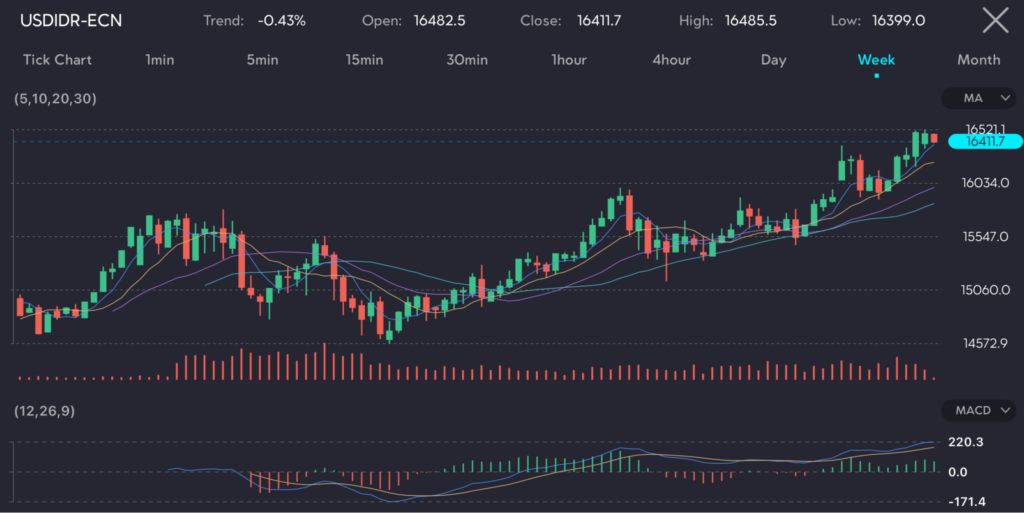Key points:
- The depreciation of the Indonesian rupiah is attributed to both external and internal factors, including global market uncertainties and US dollar demand for dividend repatriation.
- Bank Indonesia relies on foreign exchange interventions and SRBI to stabilise the currency without harming economic growth.
The Governor of Bank Indonesia (BI) Perry Warjiyo indicated that there is currently no necessity for further interest rate hikes, despite the depreciation of the Indonesian rupiah to its weakest level since 2020.
This stance is taken considering increased global market uncertainties and domestic factors, such as the US dollar demand for dividend repatriation and perceived fiscal risks due to an upcoming presidential change in Indonesia.

Picture: The Indonesian rupiah losing strength against the US dollar, as observed on the VT Markets app.
Such pressure on the Indonesian rupiah is multifaceted, including geopolitical conflicts, supply chain disruptions due to weather conditions and prolonged high interest rates in the US.
Warjiyo emphasised that current measures, including foreign exchange interventions and the use of rupiah-denominated certificates (also known as the “SRBI”), are sufficient to maintain stability. The Governor also assured the public that inflation would remain low until the end of the year.
It is further highlighted that that despite the pressure, the current approach by BI is to avoid raising the benchmark interest rate to prevent negative impacts on economic growth. Instead, BI will continue using available monetary tools to stabilise the currency.
With that, BI maintained its benchmark policy rate and opted to fine-tune other measures to support the Indonesian rupiah as global uncertainties wane.
The strategy executed by Bank Indonesia
BI had recently sold a substantial volume of SRBI to attract portfolio inflows, complementing currency intervention efforts. Warjiyo reaffirmed that the central bank is prepared to utilise all available tools including potential interest rate hikes to maintain currency stability.
Related content: Interest rate tug-of-war for central banks – Hawkish vs dovish
Back in April, BI also executed a surprise rate hike to counter the decline of the Indonesian rupiah, driven by changing expectations regarding rate cuts by the US Federal Reserve. This proactive stance demonstrates the commitment of the central bank to managing the currency in the face of fluctuating global conditions.
What will BI do next
Moving forward, BI is likely to involve a careful balance between intervention and market-driven adjustments. With the global economic landscape remaining uncertain, the flexibility in using various monetary tools will be crucial in navigating the stability of the Indonesian rupiah.
In such a market environment, traders are encouraged to complement fundamental analysis and technical analysis in navigating the complexities of currency trading.







